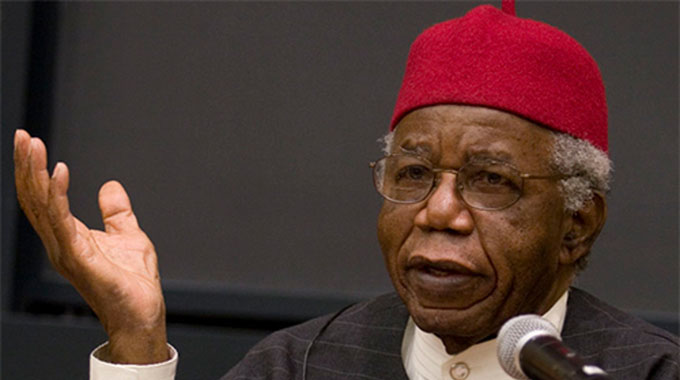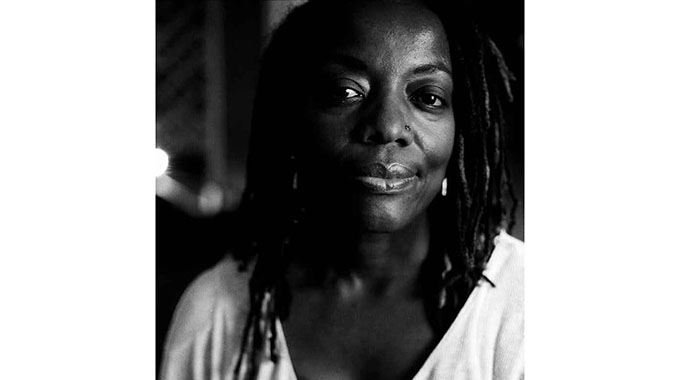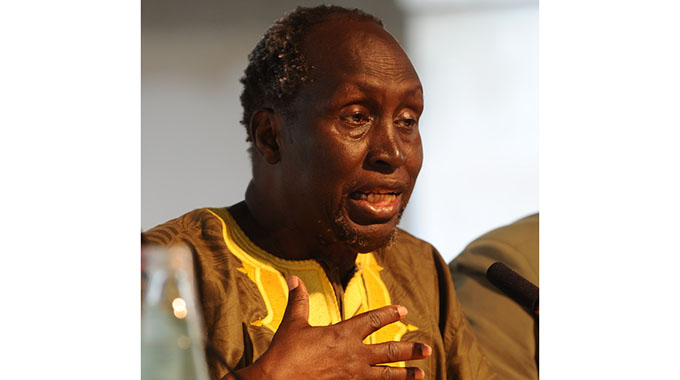
The Sunday Mail

ON Tuesday, two American men who are in their 70s — the incumbent Donald Trump, who is 74, and Joe Biden, who will be turning 78 on November 20 — will be slugging it out to land what we are told is the top job in the world.
It is literally a battle of septuagenarians.
If Biden wins the election, he would be 86-years-old by the time he completes his second term.
You might be tempted to think the United States of America doesn’t have any youths, yet, if we are to take a loose definition of the word youth, there are more than 170 million people who are below 40.
This translates to 51,8 percent, or more than half of the population.
Remember, the incumbent has intimated he might not readily concede if he loses the election as he believes this can only be possible if the election is rigged.
Also, since June, when it became apparent that he would be facing Biden at the polls, Trump has been pushing the Attorney-General to investigate the Bidens for alleged corruption in their dealings in Ukraine.
He has also systematically attacked the media that is critical of him.
This is just but a handful among a laundry list of supposed peculiarities around this year’s elections in what we are told is the world’s best model democracy.
Yeah, right!
Had all this been happening somewhere in Africa, Trump would have been invariably described as yet another “despotic” and “brutal” old man intent on “clinging” onto power by whatever means possible and imaginable, and at whatever cost.
Yet America is the world’s biggest economy.
But ageism is not an oddity in America alone.
In Japan — the world’s third-largest economy, 71-year-old Yoshihide Suga took over the reins after ex-Prime Minister Shinzo Abe resigned in August.
Some thought the fresh-faced 39-year-old Environment minister Shinjiro Koizumi — son to former Prime Minister Junichiro Koizumi — would have been an ideal candidate, but the leadership of the ruling Liberal Democratic Party, however, considered him to be too young, too green and too unprepared for onerous and weightier matters of the state. Kikikiki.
Proverbs 20:29 always reminds us, “The glory of the young is their strength; the grey hair of experience is the splendour of the old.”
Job 12:12 says, “Wisdom belongs to the aged, and understanding to the old.”
It also has to be remembered that when God gave Moses and Aaron the daunting task of freeing the Israelites from the tyrannical grip of the Egyptians, the duo was aged 80 and 83, respectively.

Chinua Achebe
Old African leaders
While age is not demonstrably a handicap for political leadership in either the US or Japan, or many other developed countries for that matter, why is it so much of an issue in this part of the world?
We are always reminded — directly and indirectly — by a phalanx of scholars, Western media and politicians that one of the major problems of Africa is that its leaders are old and incurably power-hungry.
This narrative, which is often insidiously promoted through disguised political commentary, is unfortunately sheepishly latched on by the impressionable among us.
And the implied solution is quite apparent: That we need to deep-six old men such as Bishop Lazi and replace them with vibrant and budding youth, who are waiting in the wings and ready to take over.
We are also told there is another problem — third-termism — which has recently plagued countries such as Guinea, which went to the polls recently, and Ivory Coast, which had its plebiscite yesterday.
High priests of democracy often pontificate that being in power for an inordinately long period of time is unhealthy for democracy and an affront to the tenets of good governance.
The message is more often than not delivered through the sonorous medium of Africa’s budding youthful population.
Bishop Lazarus almost cried last week after watching author Tsitsi Dangarembga’s deliver the 7th Oliver Tambo Memorial Lecture — themed “Post-Crisis Crisis: After Uhuru — wherein she claimed the Zimbabwean Government was inherently caught up in never-ending circles of brutish violence because it was a product of a violent contestation for power.
She claimed that anything born out of such an egregiously violent upheaval — the 14 years of blood-letting feud between freedom fighters and Rhodesians — was incapable of effectively promoting fundamental rights and freedoms.
The thing that made the Bishop almost cry was the dispiriting realisation that the post-crisis crisis that we have as Africans after Uhuru was the failure to complete the decolonisation process by resetting the education system and promoting a vibrant culture to define our distinguishable values, norms and systems as Africans.
As I sat there enduring the “young” novelist straining her delivery through an anglicised accent for effect, I could not help but be spooked that we might actually be living with the refined specimens of the imperial Western education system that British politician Thomas Macaulay had envisaged for the British empire in the 19th Century.
Specimens that are African “in blood and colour, but English in tastes, in opinions, in morals and in intellect.”
Specimens that are “fit vehicles for conveying” Western knowledge and culture “to the great mass of the population”.
Only someone suffering a heavy bout of naiveté can believe, as Dangarembga indeed does, that Zimbabwe is encumbered by complex politico-military factors — by virtue of being birthed from an armed struggle — that make it difficult to realise and enjoy unfettered rights and freedoms.
She seems to be oblivious to the fact that the union of the United States of America, just like many other countries, was forged out of a violent contestation for power between countries of the North and those from the South during the civil war between 1861 and 1865.
Does she even know that the evolution of the USA has been sustained and succoured by military men?
In this part of the world, they derogatorily refer to them as the “junta”.
Does she even know that 36 of the USA’s 45 presidents, including the first president George Washington who was a military general, actually served in the military?
Well, this would probably be shocking: For close to an uninterrupted 50-year period from the end of World War II in 1945, America was run by former military men, from Harry Truman (a colonel) to George Bush Senior (a lieutenant) at the end of 1993.

Tsitsi Dangarembga
These are 48 continuous years.
Even today, most of the key personnel in US administrations are sourced from the military, among other key security services, and this is not fortuitous.
Former director of the FBI James Comey in his autobiography, “A Higher Loyalty: Truth, Lies, and Leadership”, also confirms this immutable fact, claiming:
“I told our employees that military services were great organisations, (that) there was no reason why the FBI shouldn’t be the dominant government supplier for America’s corporate leaders.”
It is also similar to the ignorance surrounding limited set terms for leaders.
A lot of folks do not even know that most European countries, including Britain and Germany, do not have term limits for their leaders.
Cultural revolution
Where Bishop Lazarus comes from, literary artists, least of all novelists, are seers who were capable of piercing the superficial veil of the world and graphically revealing the world’s prejudices and hypocrisy without fear of favour.
They live in that netherworld between fiction and reality, where most creative artists seem to live, from whence they accurately dissect societies and human behaviour and eloquently communicate it to the people.
This is why Nigerian author Chinua Achebe stands tall as the true literary giant he is.
After the unfortunate recent violent incidents in Nigeria last month, where the overweening and highly prescriptive Western countries again tried to lecture the Nigerian government, Achebe made a very unique and relevant observation.
“I am not an apologist for Nigeria’s failings. I am hard-headed enough to know we must not be soft on them.
“I am also rational enough to realise we should not simply swallow the mythologies cooked up by those whose goodwill we have every reason to suspect,” said Achebe.
However, Achebe’s peer, Kenyan writer and academic Ngugi wa Thiongo, had long diagnosed the problem in his work, “Decolonising the Mind”.
“The present predicaments of Africa,” he declared, “are often not a matter of personal choice: they arise from a historical situation. Their solutions are not so much a matter of personal decision as that of a fundamental social transformation of the structures of our societies, starting with a real break with imperialism and its internal ruling allies. Imperialism and its comprador alliances in Africa can never, never develop the continent . . .

Ngugi wa Thiong’o
“In the 18th and 19th centuries, Europeans stole art treasures from Africa to decorate their houses and museums; in the 12th century, Europe is stealing the treasures of the mind to enrich their languages and cultures. Africa needs back its economy, its politics, its culture, its languages and all its patriotic writers . . .
He added: “But the biggest weapon wielded and actually daily unleashed by imperialism against that collective defiance is the cultural bomb.
“The effect of a cultural bomb is to annihilate a people’s belief in their names, in their languages, in their environment, in their heritage of struggle, in their unity, in their capacities and ultimately in themselves.
“It makes them see their past as one wasteland of non-achievement and it makes them want to distance themselves from that wasteland. It makes them want to identify with that which is furthest removed from themselves . . . It even plants serious doubts about the moral rightness of struggle . . . The intended results are despair, despondency and a collective death-wish.”
Perhaps most relevantly, Ngugi claims even in these circumstances “imperialism presents itself as the cure”.
We have truly dismally failed our youths.
Their brains, psyche, consciousness and awareness desperately needs to be rewired.
Bishop out!



